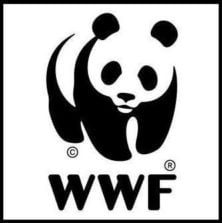Features
Cool Brands v. Hot Brands
Mark Robertson checks the climate commitments of top brands.
EIRIS’s latest research scrutinises the performance of the world’s 100 top brands to see if brand strength is backed up by real commitments to tackle climate change. To be blunt, a mismatch threatens their reputation and profitability. Yet 69 percent of the top brands lack the minimum policies, management and reporting/disclosure mechanisms required to tackle climate change.
Mark Robertson checks the climate commitments of top brands.
EIRIS’s latest research scrutinises the performance of the world’s 100 top brands to see if brand strength is backed up by real commitments to tackle climate change. To be blunt, a mismatch threatens their reputation and profitability. Yet 69 percent of the top brands lack the minimum policies, management and reporting/disclosure mechanisms required to tackle climate change.
Gillette achieves the highest overall climate change rating. Its owner, Procter & Gamble, has established long-term targets on emissions reduction and displayed strong reporting against those targets. Porsche, on the other hand, achieves one of the lowest scores. Unlike rivals such as Toyota, Mercedes-Benz, BMW and Honda, Porsche still fails to publish emissions data and report its results against published standards. The company also lacks targets to reduce the carbon emissions its cars and other business activities produce.
Among technology brands, Dell has linked executive remuneration to climate change performance, established both long- and short-term targets to reduce greenhouse gas emissions and taken steps to reduce product-related emissions. Apple does not implement any of these programmes. It has, however, shown some improvement in reducing its overall greenhouse gas emissions, while Dell’s have increased.
Coca-Cola achieves an assessment of ‘intermediate’ with a number of unidentified or unmanaged risks, whereas PepsiCo scores ‘good’.
In the face of more regulation, growing consumer expectations and greater investor awareness, climate change and other sustainability issues will undoubtedly become increasingly important factors in the determination of brand value. A lack of mitigation measures can also lead to the loss of business productivity and business interruption.
Early adopters of cleaner technologies have the opportunity to reap the benefits of an enhanced reputation and lower the risk of falling foul of current and future regulation.
And it doesn’t need me to point out the potential impacts on your share portfolio.
Mark Robertson is editor of EIRIS’s YourEthicalMoney.org


 Environment12 months ago
Environment12 months agoAre Polymer Banknotes: an Eco-Friendly Trend or a Groundswell?

 Features11 months ago
Features11 months agoEco-Friendly Cryptocurrencies: Sustainable Investment Choices

 Features12 months ago
Features12 months agoEco-Friendly Crypto Traders Must Find the Right Exchange

 Energy11 months ago
Energy11 months agoThe Growing Role of Solar Panels in Ireland’s Energy Future





























